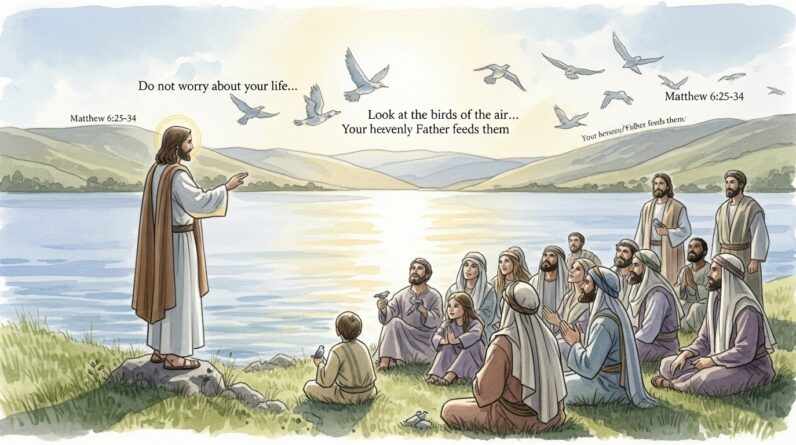Is Debt a Sin? What The Bible Says About Borrowing
Hello there, seeker of wisdom and truth! If you’re on a quest to understand what the Bible says about borrowing, you’re in the right place. Whether debt is a simple fact of life or a moral conundrum, these questions can tug at the corners of your conscience. So let’s roll up our sleeves and dive into the biblical view on debt, exploring scripture for insights, warnings, wisdom, and even when borrowing might be okay.
Debt in the Bible: An Overview
First things first—debt is not exactly celebrated in the Bible. But is it a sin? No specific verse labels debt as sinful. However, the Bible does offer ample guidance on how to approach and manage debt. It speaks to financial responsibility, cautions against too rapidly embracing the lending and borrowing culture, and provides a framework for understanding debt’s place in our lives.
Warnings Against Debt
If you’ve ever groaned under the weight of a credit card bill, you might already sense why the Bible warns against debt. The Book of Proverbs is rich with guidance, painting debt as a potential pitfall that can bind you. Proverbs 22:7 says, “The rich rule over the poor, and the borrower is slave to the lender” (Proverbs 22:7, Bible Gateway).
This passage vibrantly captures a core element of the biblical view on debt—it’s easy to become entangled and lose your freedom. Debt creates an obligation, shifting your power into another’s hands. The wisdom of these words still rings true ages later.
Wise Use of Money and Resources
Money in itself isn’t bad; it’s how we use or misuse it that matters. The Bible encourages wisdom and prudence. Proverbs 21:20 advises, “The wise store up choice food and olive oil, but fools gulp theirs down” (Proverbs 21:20, Bible Hub).
The impression here is one of prudent resource management. Be like the wise, prepare and save, rather than spending hastily. Viewing money as a blessing rather than a burden comes from aligning how you use financial resources with sensible biblical principles. It’s about living balanced—spending with intention, saving smartly, and being generous.

Acceptable Circumstances for Debt
Is there ever a biblically acceptable time to borrow? While the Bible calls for caution, it doesn’t slam the door completely on debt.
Responsible Borrowing
Romans 13:8 says, “Let no debt remain outstanding, except the continuing debt to love one another, for whoever loves others has fulfilled the law” (Romans 13:8, Bible Gateway). Here, the emphasis is on clear and timely repayment. There are times when borrowing may be necessary—perhaps to buy a house or pay for education—but the responsibility remains to repay what is owed.
Importantly, it’s a heart thing. Are your borrowing motives aligned with love and good stewardship? If done responsibly, borrowing doesn’t have to bind you in chains; it can be an opportunity for growth.
Lending Without Gouging
From the perspective of lending, the Bible takes a sharp stance against exploiting those who borrow. In Exodus 22:25, it states, “If you lend money to one of my people among you who is needy, do not treat it like a business deal; charge no interest” (Exodus 22:25, Bible Hub).
Here, the principle is one of compassion and empathy. Lending should not be taken as an opportunity to capitalize on someone’s hardship. If you find yourself in a position to lend, the biblical route is one of grace and support.
Spiritual and Practical Wisdom on Debt
Let’s talk about some takeaways that resonate with both the spiritual and practical sides of life.
Contentment and Gratitude
The Bible often places a premium on finding contentment and gratitude over acquiring material wealth. Hebrews 13:5 places this in perspective: “Keep your lives free from the love of money and be content with what you have, because God has said, ‘Never will I leave you; never will I forsake you'” (Hebrews 13:5, Bible Gateway).
By anchoring your life in gratitude and contentment, you begin to move away from the pursuit of possessions that might lead you into unnecessary debt.
Seeking God’s Wisdom
When unsure of a financial decision, seeking God’s wisdom through prayer and scripture is invaluable. James 1:5 assures us, “If any of you lacks wisdom, you should ask God, who gives generously to all without finding fault, and it will be given to you” (James 1:5, Bible Hub).
God is open-handed in granting peace of mind for every financial or non-financial worry. If your heart is in the right place, trust that His wisdom will illuminate your path.
Summing It Up
So, is debt a sin? Not exactly, but the Bible certainly steers us towards caution, warning against the loss of freedom and well-being that hasty borrowing can cause. The overarching theme is one of wisdom, prudence, and aligning your motives with generosity and good stewardship. Debt may have its place, but that place is one of responsibility and care.
Explore More
For further reading and encouragement, check out these posts:
👉 7 Bible Verses About Faith in Hard Times
👉 Job’s Faith: What We Can Learn From His Trials
👉 How To Trust God When Everything Falls Apart
👉 Why God Allows Suffering – A Biblical Perspective
👉 Faith Over Fear: How To Stand Strong In Uncertain Seasons
👉 How To Encourage Someone Struggling With Their Faith
👉 5 Prayers for Strength When You’re Feeling Weak

📘 Jesus and the Woman Caught in Adultery – Grace and Mercy Over Judgement
A powerful retelling of John 8:1-11. This book brings to life the depth of forgiveness, mercy, and God’s unwavering love.
👉 Check it now on Amazon
As a ClickBank Affiliate, I earn from qualifying purchases.
Acknowledgment: All Bible verses referenced in this article were accessed via Bible Gateway (or Bible Hub).
“Want to explore more? Check out our latest post on Why Jesus? and discover the life-changing truth of the Gospel!”








